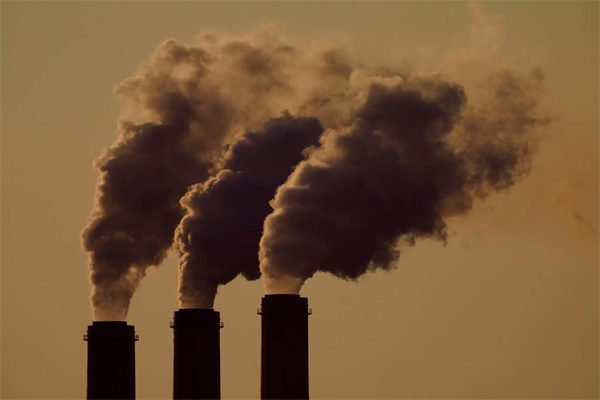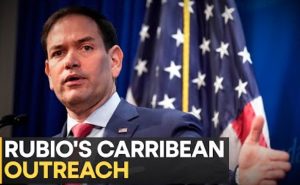
By Paul Krugman
Three and a half years ago, an open letter that more than 3,600 economists eventually signed declared that “climate change is a serious problem calling for immediate national action.” The signatories included 15 former chairs of the Council of Economic Advisers, more than half of whom served under Republican presidents — a display of bipartisanship that contrasts sharply with the lock-step opposition of Republicans in Congress to the national action we’re finally taking in the form of the Inflation Reduction Act (which, despite its name, is mainly a climate bill) that President Biden is expected to sign today.
While we’re getting action, however, that action isn’t taking the form called for in the letter. That huge array of economists agreed that climate change mitigation should take the form of a carbon tax — a fee levied on businesses and individuals who emit greenhouse gases. This, the letter argued, was the remedy recommended by “sound economic principles.” But the I.R.A. doesn’t include a carbon tax, nor does it introduce a system of tradable emissions permits, which would provide similar incentives.
Instead, the act relies almost entirely on subsidies intended to promote clean energy, offering tax credits for renewable energy, aid to keep nuclear plants operating, incentives to buy electric vehicles and make homes more energy efficient and more.
So what happened to the carbon tax idea? Biden administration officials are well aware of the Econ 101 case for emission taxes. Indeed, Janet Yellen, the Treasury secretary, and Cecilia Rouse, the current C.E.A. chair, were among the letter’s signatories. I also understand that logic — in fact, the introductory economics textbook I wrote with Robin Wells makes that argument in some detail. But a few months after the letter was released I made the case in a Twitter thread against being a “carbon tax purist,” arguing that an exclusive focus on carbon taxes was “dubious economics and bad political economy.”
And in practice Democrats ignored the carbon tax route. Why?
One answer is that as I suggested, the economic case for the superiority of emission taxes over other policies isn’t as solid as it may appear — because it relies on the implicit assumption that the set of available technologies can be taken as given. If the cost of renewable energy is what it is, and the same is true of other approaches to climate mitigation like improving building insulation, a carbon tax has the virtue of giving people the incentive to reduce emissions as cheaply as possible.
But a carbon tax may not give the right incentives for the development of new technologies; for that, you may need targeted subsidies in promising areas.
Now, this is an old argument — basically the argument over whether we should have a deliberate industrial policy rather than just letting the market do its thing. And the technological case for industrial policy can easily be abused to justify wasteful intervention. But the recent history of energy technology — revolutionary cost reductions for renewable energy that seem to have been jump-started by government aid — suggests that at least for now, with low-emission technologies still in their infancy, there’s a strong case for industrial policy as opposed to, or in addition to, carbon pricing.
And beyond the straight economics, there are overwhelming political arguments against making carbon taxes the centerpiece of climate policy.
The economists’ letter asserted that the political downsides of a carbon tax — Higher taxes! Big government! — could be neutralized by promising to rebate the proceeds to taxpayers, “to avoid debates over the size of government.” This was naïve, even setting aside the certainty that conservatives would have relentlessly demagogued the tax increase no matter what the government promised to do with the revenues.
Because people aren’t just consumers and taxpayers, they’re also workers. And any policy that reduces greenhouse gas emissions will displace jobs in fossil fuel industries; there’s just no way around it. To be politically feasible, a climate policy has to credibly promise the creation of new jobs in other sectors — not with a general assurance that “a market economy will find other things for workers to do” but with specific prospects of new employment in solar panel installation, retrofitting of existing buildings and so on.
As I wrote back in that 2019 thread, “If we’re going to pass anything that helps avert catastrophe, it will have to be a Christmas tree” — that is, a bill that offers a lot of specific payoffs to various interests. And if news reports about the signing ceremony are right, today is Christmas.
For the incredible fact is that we have, after decades of fruitless appeals for action, done something major about climate change. Policy ideas don’t do any good unless they get turned into actual legislation. Yes, the Inflation Reduction Act is a Christmas tree, not the simple, clean policy envisaged by advocates of a carbon tax. But energy experts are nonetheless enthusiastic about its prospects, and believe that it will make a big difference to emissions.
Does this mean that we should never impose a carbon tax? No, not at all. There’s still a good case for giving people a direct financial incentive to limit emissions, and such a thing may become politically possible as the economy decarbonizes and green energy becomes a more powerful interest group.
For now, however, we’re tackling climate change with carrots, not sticks, with subsidies, not taxes. And that’s OK.
_________________________________________________________________________
Paul Krugman has been an Opinion columnist since 2000 and is also a distinguished professor at the City University of New York Graduate Center. He won the 2008 Nobel Memorial Prize in Economic Sciences for his work on international trade and economic geography. @PaulKrugman. Energiesnet.com does not necessarily share these views.
Editor’s Note: This article was originally published by The New York Times-NYT on August 16, 2022. A version of this article appears in print on June 7, 2022, Section A, Page 21 of the New York edition with the headline: From the Big Short to the Big Scam. EnergiesNet.com reproduces this article in the interest of our readers. All comments posted and published on EnergiesNet.com, do not reflect either for or against the opinion expressed in the comment as an endorsement of EnergiesNet.com or Petroleumworld.
Use Notice: This site contains copyrighted material the use of which has not always been specifically authorized by the copyright owner. We are making such material available in our efforts to advance understanding of issues of socially, environmental and humanitarian significance. We believe this constitutes a ‘fair use’ of any such copyrighted material as provided for in section 107 of the US Copyright Law. In accordance with Title 17 U.S.C. Section 107. For more information go to: http://www.law.cornell.edu/uscode/17/107.shtml.
EnergiesNet.com 08 17 2022












